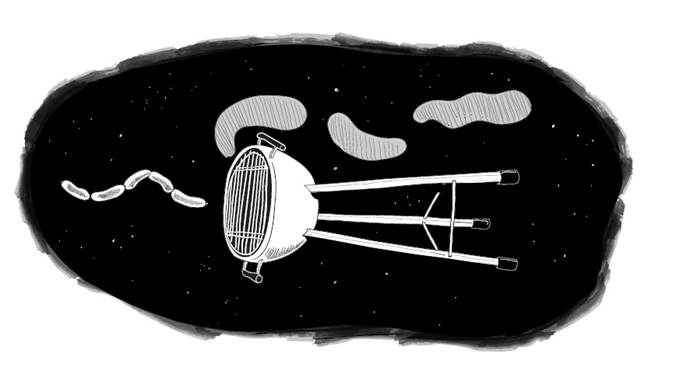- Home |
- Search Results |
- Why does space smell like BBQ?
Does Space Smell?
From Sally, age 8, Portsmouth
This is a favourite question of mine and yet one of the hardest to answer. That’s because yes, space does smell…but exactly what it smells of is much harder to put your nose on.
I smelt space on a number of occasions. The first time was after just a few days on the Space Station, when I was helping astronauts Tim Kopra and Scott Kelly back in after their spacewalk. Subsequently, there was a strong and distinctive smell whenever we opened the airlock after it had been exposed to the vacuum of space.
The mystery scent is the topic of much light-hearted debate among astronauts. It has been described as seared steak, hot metal, welding fumes and barbeque to name a few. There are some suggestions that the smell may originate from the spacesuit itself, with certain components ‘off-gassing’ having been exposed to vacuum and thermal extremes. However, in my opinion, the smell of space is like static electricity. For example, when you take off a shirt or jumper and sometimes get a large static discharge - it has that kind of burnt metallic smell.
Actually, what you're most likely smelling with static electricity is ozone. Ozone can occur naturally when high-energy ultraviolet rays (such as from the sun, lightning or static electricity) strike oxygen molecules, splitting the molecule into two single oxygen atoms. A freed oxygen atom then combines with another oxygen molecule to form O3 – ozone. Although ozone is present in the lower part of the stratosphere, it is not present at 400 km above Earth…so why would we smell it in space? Well, atomic oxygen is present in space. In fact, what little atmosphere there is outside the International Space Station consists of about 90% atomic oxygen. It’s possible that atomic oxygen is being introduced to the airlock when exposed to space, and then on re-pressurisation it’s reacting with oxygen molecules from the space station atmosphere, thereby creating ozone.

'The smell of space has been described as seared steak, hot metal, welding fumes and barbeque'

Perhaps the most wistful theory is that the smell of space is the left-over aroma of dying stars. There’s an awful lot of combustion going on in the universe. Stars mostly comprise hydrogen and helium gas, powered by a nuclear fusion reaction that can last for billions of years. At the end of its life, as the hydrogen fuel is used up, a star will collapse on itself and undergo a violent supernova explosion, during which heavier elements such as oxygen, carbon, gold and uranium will be produced. All this rampant combustion produces smelly compounds called polycyclic aromatic hydrocarbons. These molecules are thought to pervade the universe and float around forever. So are we smelling the left-overs from some of the earliest stars when we stick our nose into the airlock? Who knows?
Either way, I found it a rather pleasant smell and it reminded me a little of a British summer barbeque, burning sausages on a charcoal grill...
Tim is pleased to announce that, as with his previous book Hello, Is This Planet Earth?, royalties received from Ask An Astronaut will be donated to The Prince’s Trust.